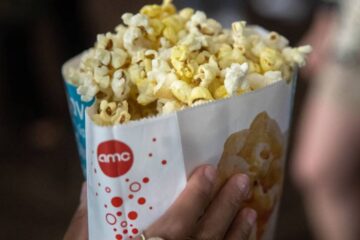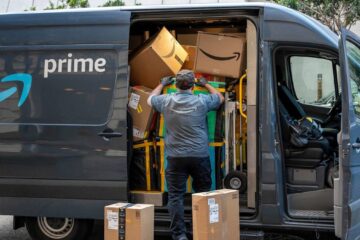For decades, it seemed like consumers have very little beverage choice. If you went to the grocery store, the soft drink aisle was dominated by Coca-Cola and PepsiCo products.
You had a few juice brands, and there might be packaged iced tea, and some really terrible instant coffee type drinks.
Related: Bankrupt retail chain closing over 200 more stores
The entire ready to drink, coffee and iced tea market did not exist. You also did not have energy drinks and the new craze around adding protein to beverages was not a thing.
Outside of the grocery store, most markets had a local coffee chain, or even a large one, like Dunkin’, but beverages was not a major category.
Now, it seems that a ton of companies, everything from convenience stores to restaurants and dedicated cafés understands that beverages are very high margins.
💵💰Don’t miss the move: Subscribe to TheStreet’s free daily newsletter💰💵
American consumers have also shown a willingness to try these things. Bubble tea has built a bit of a market and Starbucks sells way more than coffee. Even McDonald’s plans to expand its beverage lineup because it seems like easy money.
The reality is that there’s too much competition in the space. When you have Coca-Cola, closing dozens of brands and a number of promising companies not making it, you realize that high margins are great, but a crowded marketplace is not.
Caraway makes tea for other companies.
Image source: REDA/Getty Images
Tea-maker sells white label drinks
Some brands operate out of site. You may not know US Foods or Cheney Bros., but they probably supplied the restaurant chain (or local restaurant) you last ate at.
Caraway Tea is one of those large, but off the radar companies. The brand explained its business on its website.
“As a family-owned business, Caraway cares about your business as much as you do. From our modest beginnings to today’s respected reputation as an established leader in the tea co-packing and manufacturing industry. We turned our passion for truly fine tea into being the most customer obsessed, premier private label tea manufacturing company,” it shared.
More bankruptcy:
Iconic auto repair chain franchise files Chapter 11 bankruptcyPopular beer brand closes down and files Chapter 7 bankruptcyPopular vodka and gin brand files for Chapter 11 bankruptcy
Co-packing is not a term most people understand. Basically, it’s when a third-party works with a brand to bring their product to retail, exactly the way they want it. Many food brands use a co-packer once they hit a certain scale.
“We provide customers a different kind of experience with diversified co-packing services tailored to meet your needs. We offer custom blending and packing of fine-grade teas, herbs and unique botanicals for discerning brands,” Caraway explained.
Caraway Tea files Chapter 11 bankruptcy
While its partners may decide what recipe they want, or the types of teas they plan to sell, Caraway sources the product and prepares it for retail. That could mean loose tea or ready-to-drink beverages.
“From China and Sri Lanka to India and Japan, we continue to develop deep source connections and personal relationships, working directly with artisan tea growers and single-family estates who use only organic sustainable agricultural practices who share our passion to produce teas that yield diverse, subtle flavors that cannot be found in other tea offerings — you can taste the difference,” the company posted.
Caraway Tea has now filed for Chapter 11 bankruptcy protection with $100,000 to $500,000 in assets, and $1 million to $10 million in liabilities. The voluntary petition indicates the company has fewer than 50 creditors.
Related: Disney World closing three iconic attractions permanently
The company, which does wholesale tea under its own name appears to still be operating. It makes no mention of the Chapter 11 bankruptcy filing on its website and its blog has not been updated since 2023.
Caraway Tea does not appear to have any social media pages.


